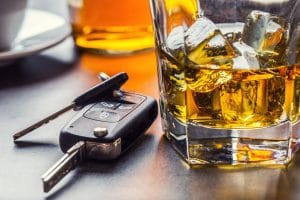Congress Is Taking on Drunk Driving in Surface Transportation Bill
 People who have been convicted of driving while under the influence are familiar with certain ignition interlock devices. These are the types of devices that prevent a driver from operating a vehicle when he or she is inebriated. The driver cannot even turn the vehicle on without blowing into the breathalyzer and determining whether the driver has been drinking.
People who have been convicted of driving while under the influence are familiar with certain ignition interlock devices. These are the types of devices that prevent a driver from operating a vehicle when he or she is inebriated. The driver cannot even turn the vehicle on without blowing into the breathalyzer and determining whether the driver has been drinking.
What if that type of technology existed for all drivers, not just the drivers who have committed the act of drunk driving and potentially put others at risk? Well, if the new surface transportation bill is passed as a law, this type of technology can be introduced to the public in about three years after the law is passed.
The United States Congress is in the process of working on a $78 billion surface transportation bill that will be part of the $1 trillion infrastructure package. The surface transportation bill consists of a significant safety provision that will help to reduce the number of drunk drivers behind the wheel, should the bill become law, by introducing an “advanced drunk and impaired driving prevention technology safety standard.”
How will this type of technology work?
Multiple technologies could be implemented to detect alcohol in a driver’s system. For example, hi-sensitivity sensors in the transmission shift knob could be installed to detect alcohol in the driver’s perspiration. Other sensors can be installed to detect alcohol in the air of the vehicle. Even the vehicle itself can monitor the driver’s face to search for signs of impairment. Other technologies are capable of searching for driving behaviors that are indicative of a drunk driver, such as swerving in and out of the lane.
Once the vehicle detects this sort of behavior, it can immobilize and issue a “drunk driving” voice alert over the sound system. If the vehicle is already moving, the seat belts can become tightened and prepare for a crash.
What are the benefits of this new technology?
The biggest benefit to implementing this type of technology would be the number of lives that would be saved. The National Highway Traffic Safety Administration (NHTSA) reports that around 10,000 people are killed each year because of alcohol-related car accidents in the United States.
These types of technologies prevent drunk drivers not only from operating vehicles while being impaired but prevent fatal car accidents from happening while the drunk driver is operating the vehicle. With the advances in technology, anti-drunk driving technologies can serve as a tool to save not only the other motorists and passengers on the road but the driver as well.
Because of the advancements in technology where a car can either immobilize or prevent a drunk driver from operating a vehicle, the number of car accidents will significantly decrease. Studies that have analyzed car accident data reveal that about a quarter of all alcohol-related car accidents could have been prevented if the drunk driver’s blood alcohol content (BAC) level was below 0.08.
Technology like breathalyzers and other ignition interlock devices help to prevent a drunk driver from even being able to start the vehicle. In the case that a car accident does occur, the impact may not be fatal for either the drunk driver or the other motorists and pedestrians. The safety features that are currently being introduced as options will come to be essential in a few years.
Are there any drawbacks?
There is one potential drawback that we can think of, though it would need to be weighed against the benefit of saving lives. The risk is this: software can malfunction, and it could potentially end up harming innocent people. For example, Car & Driver says “Since it’s been fourteen years since this concept was released, we can easily imagine an updated version that would use driver-assistance technology to slow down and stop the car if it were to be built today.” Stopping a drunk driver is good, but what if the car just stops loving in the middle of a highway? What if the driver isn’t drunk, and cannot regain control of the vehicle, which puts him/her and others at-risk? We fully support anything that reduces drunk driving, but we also want to make sure that people won’t be put at risk of a crash needlessly.
Manufacturers and drivers are supporting this new tech
Some car manufacturing companies have been in favor of the implementation of anti-drunk driving technology in future vehicles. For decades, the federal government and the automobile industry have been collaborating to figure out how to develop the technologies as part of a Driver Alcohol Detection System for Safety, otherwise known as DADSS. Some of the technologies have the ability to passively detect whether a drunk driver is intoxicated and prevent the car from starting.
Even more important, though, is that drivers support the implementation of these safety systems, too. Per Forbes, “A survey of U.S. drivers from a number of years ago indicated that nearly two-thirds said they would support the installation of alcohol-detection systems in all vehicles, as long as they were fast, accurate and unobtrusive.”
So what’s stopping manufacturers from installing these systems? The most likely culprit is money. Forbes reports that “less than half of the respondents said they’d be willing to pay extra, even if a system cost less than $500.” That means manufacturers would have to eat the costs themselves in order to move forward with installing the tech. And this is why the new infrastructure bill could be so critical; by supplying monetary incentives to manufacturers, we may see cars with this new feature on the road sooner than we thought.
Congress has the right idea when it comes to anti-drunk driving technology. Now, all they have to do is fund it. If you are injured by a drunk driver, the Chicago car accident lawyers of Gainsberg Injury and Accident Lawyers are here to help. To schedule your free initial consultation, please call 312-600-9585 or fill out our contact form.

Attorney Neal Gainsberg has spent the last 20+ years fighting to protect the rights of the injured in Chicago and throughout Illinois. For dedicated legal help with a personal injury, car accident, or wrongful death matter, contact Gainsberg Injury and Accident Lawyers in Chicago for a free consultation.
